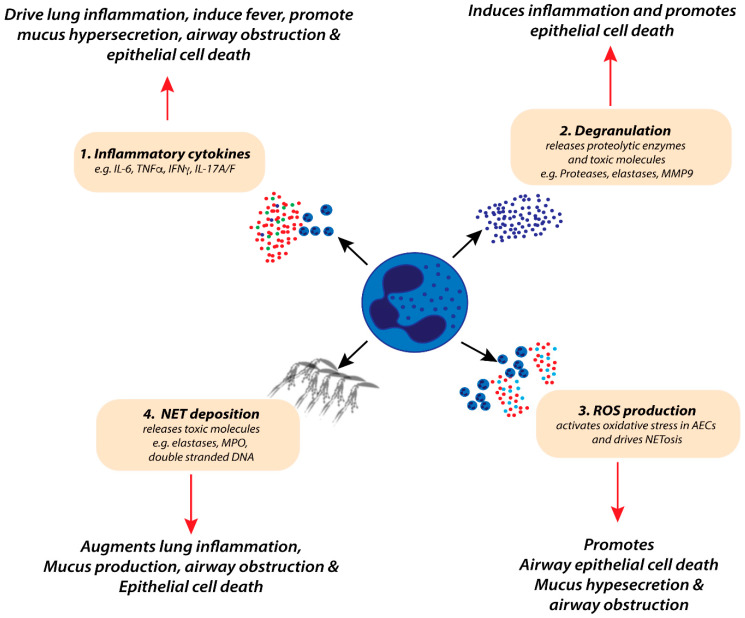Figure 1.
Potential roles of neutrophils in the pathophysiology of severe respiratory syncytial virus (RSV) bronchiolitis. Excessive neutrophil-derived inflammatory cytokine production (1), degranulation (2), respiratory oxygen species (ROS) production (3), and the release of neutrophil extracellular traps (NETosis) (4) are associated with increased lung inflammation, systemic fever, mucus hypersecretion, airway obstruction, and epithelial cell death. Together, these factors contribute to increased lung damage during severe RSV bronchiolitis.

